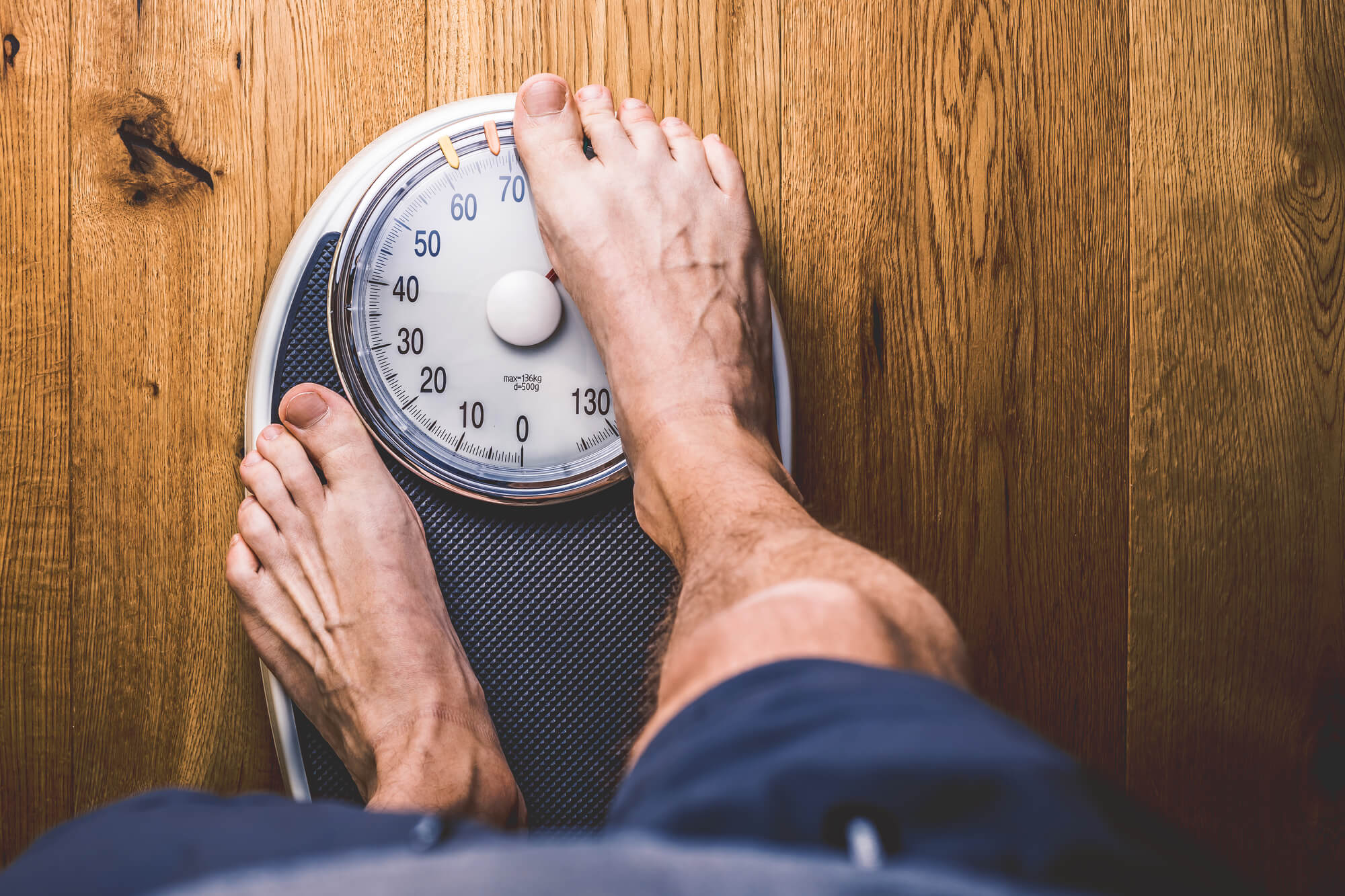Nobody wants to roll out of bed in the morning feeling lethargic and clumsy.
Nobody wants to look in the mirror and think, Ugh, how did I get this way?
But unfortunately, many of us do feel that way. We’re living in a chaotic modern world where the demands of our jobs and personal lives force us to see our own health as a distant priority. This leads to weight gain, fatigue, and chronic conditions that make daily life a constant struggle.
Perhaps no battle is more confusing and frustrating than the battle to make healthy eating choices. Fad diets and nutrition “experts” alike have caused the widespread disbelief that we just need to count calories to stay healthy and lose weight, but it’s nothing but a recipe for failure.
How did the truth about calories become so confusing, and what’s the true relationship between calories and weight loss? Let’s dig in to find the answers.
Why Is There So Much Confusion About Calories?
As human beings, we’re conditioned to follow the path of least resistance. Whether we’re trying to make a million dollars, have a great marriage, or lose weight, we want to do it with the least amount of energy possible.
Plus, countless companies, individuals, and influencers are vying to earn your weight loss dollars on a regular basis. From weight loss shakes to fitness programs, we have thousands of opinions, methods, theories, and explanations pushed in our faces all day long.
The advent of social media has only made matters worse. Now anybody who has an opinion, regardless of their education, experience, or credentials, can voice “advice” for all to hear. Some of it sounds great! It’s presented with clever videos and colorful marketing, but that doesn’t make it legitimate.
Together, these factors create the perfect storm of confusion and misinformation. So let’s stop the madness. With so much information at our fingertips, we’re all really just craving one thing: wisdom.
What Are Calories?
A calorie is simply a unit of measurement. Every calorie holds potential thermal energy, which means that it gives your body a certain amount of energy when it’s consumed and burned. Calories receive a lot of blame for weight gain based on the assumption that too many calories create a surplus that turns into fat.
All Calories Are NOT Created Equal
Although there’s some truth to that idea, it’s founded on a wildly incorrect belief that all calories are created equal. You can think of a calorie like a cookie. If someone offers you a cookie and you accept, what will you receive? A chocolate chip cookie? Oatmeal raisin? Macadamia nut? Will it be thick and fluffy? Thin and crispy? Calories are just as unique and varied as types of cookies.
Proteins, fats, and carbohydrates all contain calories, but those calories have unique biochemical and physiological influences on your body. You already know, just based on instinct, that the calories in a Kit Kat Bar are not the same as the calories in a cup of broccoli. That instinct is the reason you feel guilty for eating a chocolate bar, but proud and accomplished for adding broccoli to your dinner plate.
Calories Are Not Your North Star
When you take all of this into consideration, you can understand why calories are not your North Star to successful weight loss. The common advice to “burn more calories than you eat” doesn’t take the source of calories into consideration. You can’t eat 1,000 calories of carrot cake and potato chips, take a ten-mile run, and expect to look fit and slim.
The sources of your calories matter! A person eating 2,500 calories in healthy fats, lean proteins, and whole grains will look and feel much healthier than a person eating 1,500 calories of junk. If you take a black-and-white approach to your calorie intake, you’re only setting yourself up for failure.
Find Your North Star: Normal Blood Sugar Level
Here’s the wisdom that you need to achieve successful weight loss: focus on achieving normal blood sugar levels.
When you turn your attention away from counting calories and concentrate instead on making dietary choices that normalize your blood sugar level, everything else will fall into place. You’ll automatically incorporate healthier sources of calories and give your body the opportunity to shed excess weight.
What Is Blood Sugar and Why Does It Matter?
Blood sugar is the amount of sugar in your blood. Every time you eat a food or drink a beverage that contain carbohydrates, these carbohydrates are broken down into their basic building blocks, glucose +/- dietary fiber. Fiber is nature’s only “freebee” and it all ends up in the toilet. Glucose is another story, it remains in your bloodstream until a hormone called insulin arrives to transport the glucose inside of energy deprived cells throughout your body. The challenge is, once these cells have their energy needs met (which happens VERY quickly, by the way), the glucose has nowhere else to go and begins to elevate. Elevated glucose levels leads to elevated insulin levels –more on this in a bit…
This glucose (sugar)-insulin-energy process is natural and essential to good health, but unfortunately it’s also highly threatened by our culture’s unhealthy lifestyle and eating habits. More than half of Americans have chronically elevated blood sugar. If you allow your blood sugar levels to stay elevated, the consequences become worse with every passing day.
How Does High Blood Sugar Cause Weight Gain?
Your body responds to chronically elevated high blood sugar by pumping more insulin into your bloodstream. This response works effectively in isolated situations, but not as a chronic response to poor eating habits. Eventually, you develop insulin resistance (and ultimately Diabetes) as insulin loses its power to normalize your blood glucose levels.

In addition to normalizing blood sugar, insulin is also the primary regulator of fat metabolism in your body. If your muscles, liver, and other cells are already equipped with enough glucose, insulin instructs all remaining sugars to be converted into dangerous fatty-sugars cells called triglycerides.
As long as your body’s insulin levels remain high, which is almost guaranteed if you’re eating foods that constantly trigger spiked blood sugar, insulin will then drive these newly formed triglycerides into your fat cells for long-term energy storage.
In other words, insulin makes your fat cells fatter.
Now you can see why it’s not enough to just lower your calorie intake to lose weight! You need to eat calories from healthy sources that won’t perpetuate your high blood sugar levels and keeps insulin at bay.
The Connection Between Blood Sugar and Calories
The types of calories in the foods you eat determine its effects on your blood sugar. Healthy fats and lean proteins don’t contain the type of calories that contribute excess glucose into your blood, so they don’t send blood sugar levels surging.
Refined carbohydrates and processed foods, meanwhile, are laden with sugar calories that immediately overload your bloodstream with excess glucose. As soon as your blood sugar creeps above 100 mg/dl, insulin is released from your pancreas and your body’s storage mechanisms are triggered to create and store fat.
As a result, if your food choices keep your blood sugar levels chronically over 100 mg/dl, your body never exits fat storage mode. This is basically the “anti-health” mode. In other words, your body can’t function properly when your blood sugar levels are out of control. You make and store fat instead of burning fat, and the cycle continues until you find a way to break it.
How Can You Change Your Diet To Lose Weight?
Losing weight (and keeping the weight off!) requires a shift in your mindset. Instead of thinking, “How many calories am I eating?”, you need to ask yourself, “What will these calories do to my blood sugar?”
Understand the Composition of Your Food
Start by taking a much closer look at the foods you normally eat. Investigate beyond the total number of calories to gain a better understanding of its impacts on your blood sugar.
The quickest way to stabilize your blood sugar is through your diet. Nothing raises your blood sugar faster than carbohydrates, especially high-sugar and refined carbs. It’s for this reason that you want to steer clear of white bread, crackers, chips, pastries, and other carb-dense foods.
When you turn your attention away from dangerous carbohydrates, you can start to enjoy delicious whole foods that help to normalize your blood sugar instead of sending it surging:
- Healthy fats like avocado, almonds, coconut oil, salmon
- High fiber foods like fresh veggies (bright, colorful veggies that grow above the ground), whole fruit (berries)
- Fresh herbs and spices
- Lean proteins like eggs, grass-fed beef, poultry, and Greek yogurt
Avoid Hidden Sugars
You might be thinking, “Hey, it’s not like I eat brownies for breakfast! I don’t eat a ton of sweets, so I don’t need to make changes.”
Think again.
Hidden sugars lurk everywhere, causing you to spike your blood sugar when you’d least expect it. Many hidden sugars don’t start as sugar at all, but they get converted into sugar as soon as they pass through your mouth.
Take granola cereal as an example. It seems harmless enough, right? Your granola might only have a few grams of sugar on the label. However, granola is rich in carbohydrates. All of those carbohydrates turn into sugar and spike your blood glucose as soon as they pass your lips, just like ice cream or cookies would.
This is exactly why the foods you choose can make such an incredible difference to your health and weight. Foods that are low in carbohydrates and sugars — like broccoli, almonds, and eggs — don’t turn into excess glucose and knock your blood sugar levels sideways.
Instead, water-based fruits, vegetables, lean proteins, and whole grains nourish your body with the fiber, nutrients, and sustainable energy needed to accelerate your metabolism, give you lasting energy, support your digestive system, and help you lose weight.
Start your own path to weight loss by limiting your carb intake. Replace carbs with the following foods proven to boost insulin sensitivity and balance your blood sugar levels for good:
- Avocado
- Almonds and other nuts
- Spinach and broccoli
- Tofu
- Legumes
- Tomatoes
- Brewer’s yeast
- Lean meats
- Coffee
- Egg yolks
- Fish
- Apple cider vinegar
The Bottom Line: Use Normal Blood Sugar As Your North Star To Lose Weight
Here’s the most basic truth about weight loss: You can’t outrun your mouth. No amount of exercise can reverse a high-sugar, high-carb diet that keeps your blood sugar level chronically elevated.
Once you successfully make the mental shift from counting calories to counting net carbs, you’ll create better eating habits that don’t just help you lose weight, but also protect you from disease and help you feel like a better, stronger, revitalized version of yourself.
If you don’t want to take this journey alone, find a compassionate and experienced doctor who understands your goals and who can put you on the path to a leaner, healthier body. As the founder of Brentwood MD, I’ve worked closely with many patients who feel frustrated and frightened by their uncontrollable weight gain.
When you trust Brentwood MD to help you successfully tackle your weight, we’ll become your number one advocate and guide you through the process of balancing your blood sugar to optimize your health.
Learn more about our concierge medicine practice now to start your journey to a better health and wellness.

Dr. Aaron Wenzel is a concierge physician specializing in the care of fast-moving entrepreneurs, executives, and public figures in the Nashville, TN area. Dr. Wenzel’s diverse life experience and extensive training in family medicine, emergency care, nutrition, and hormone replacement therapies give him the unique platform to provide unmatched care for his patients.






